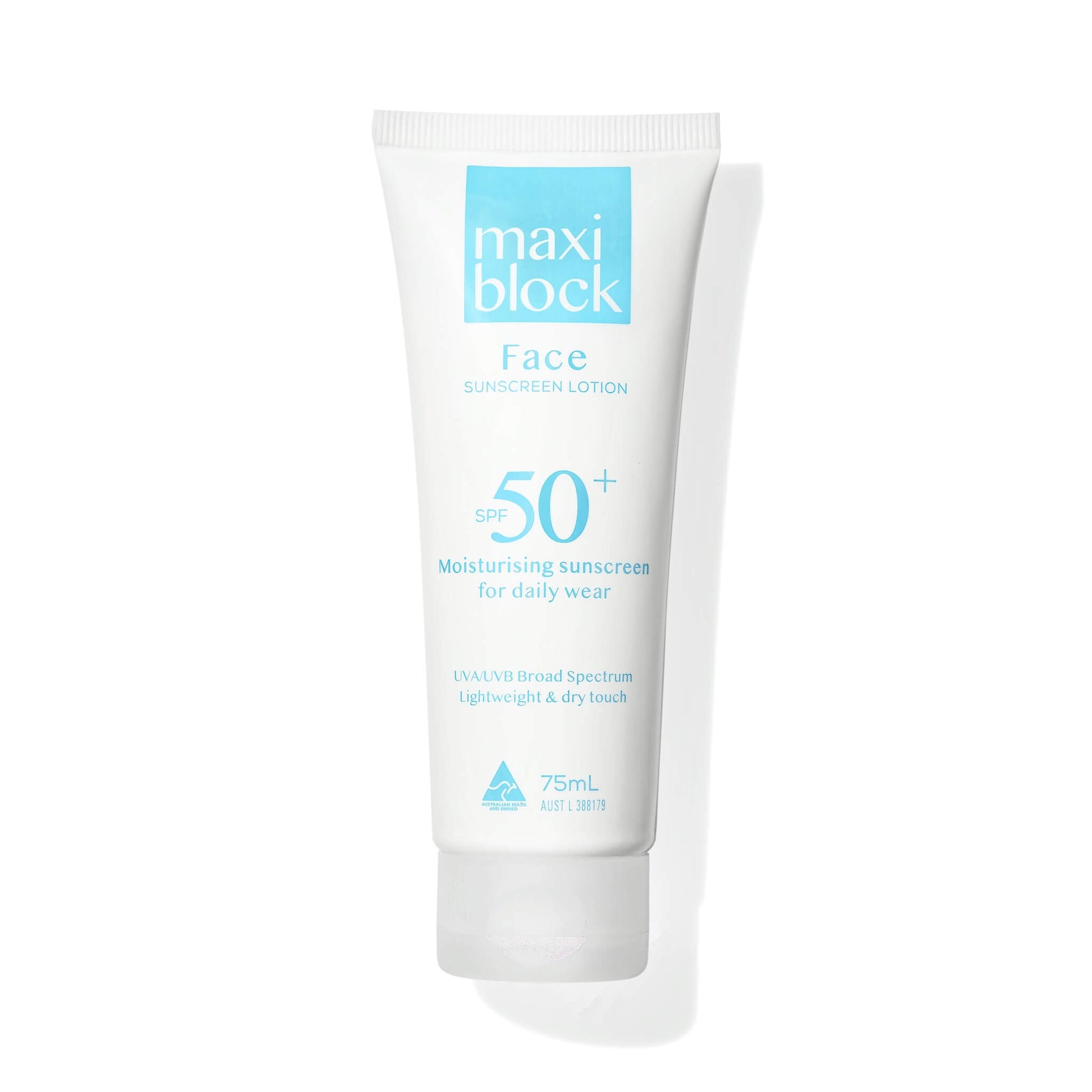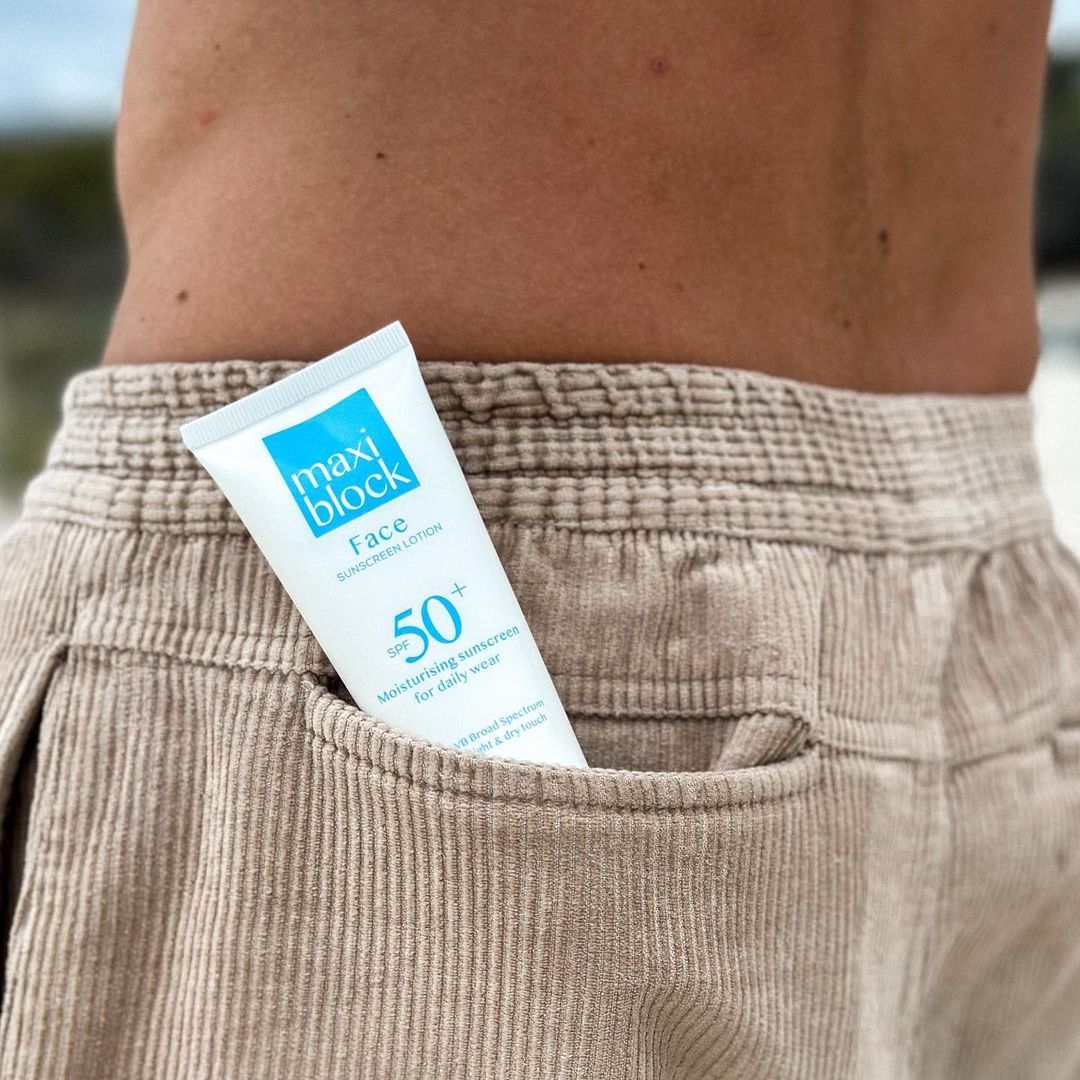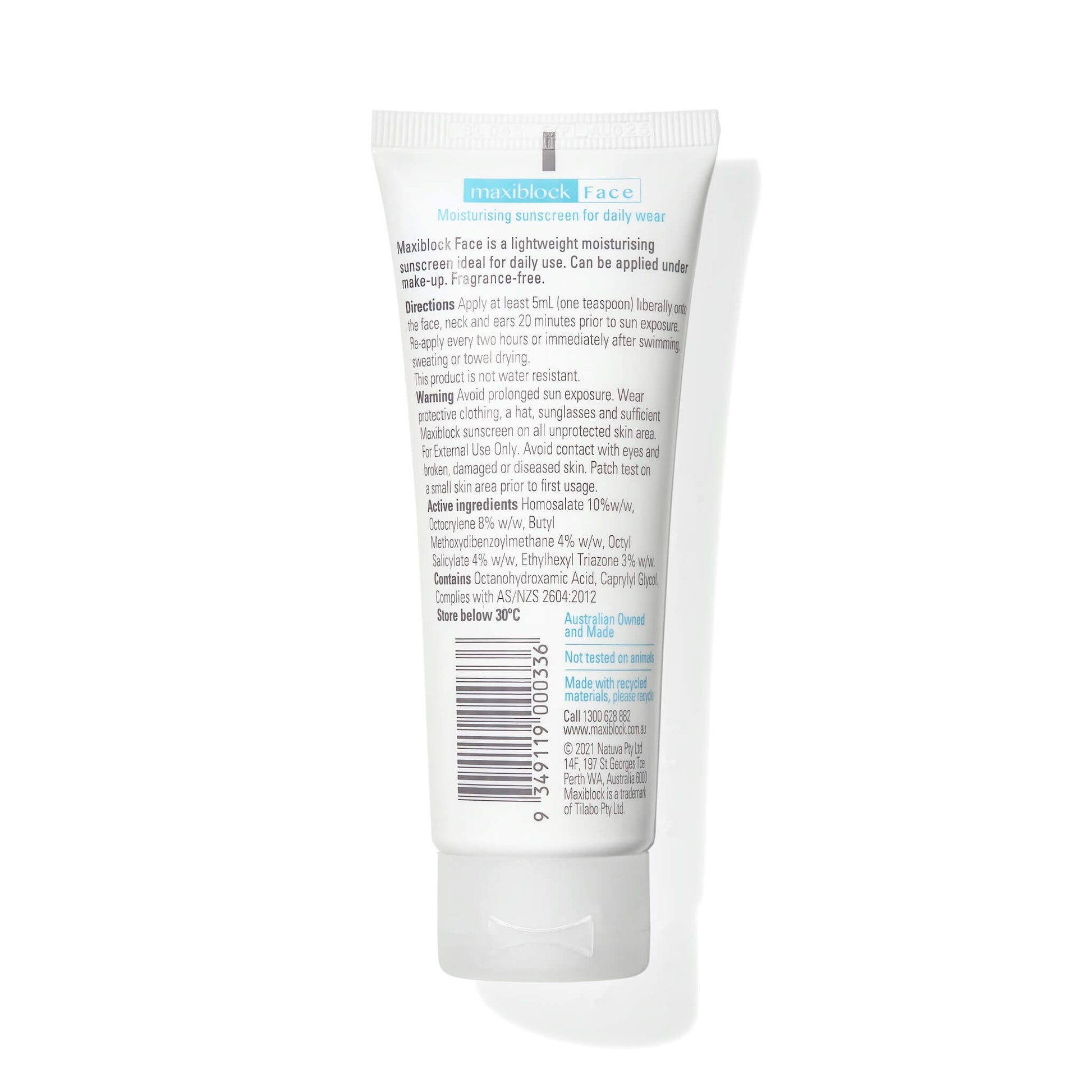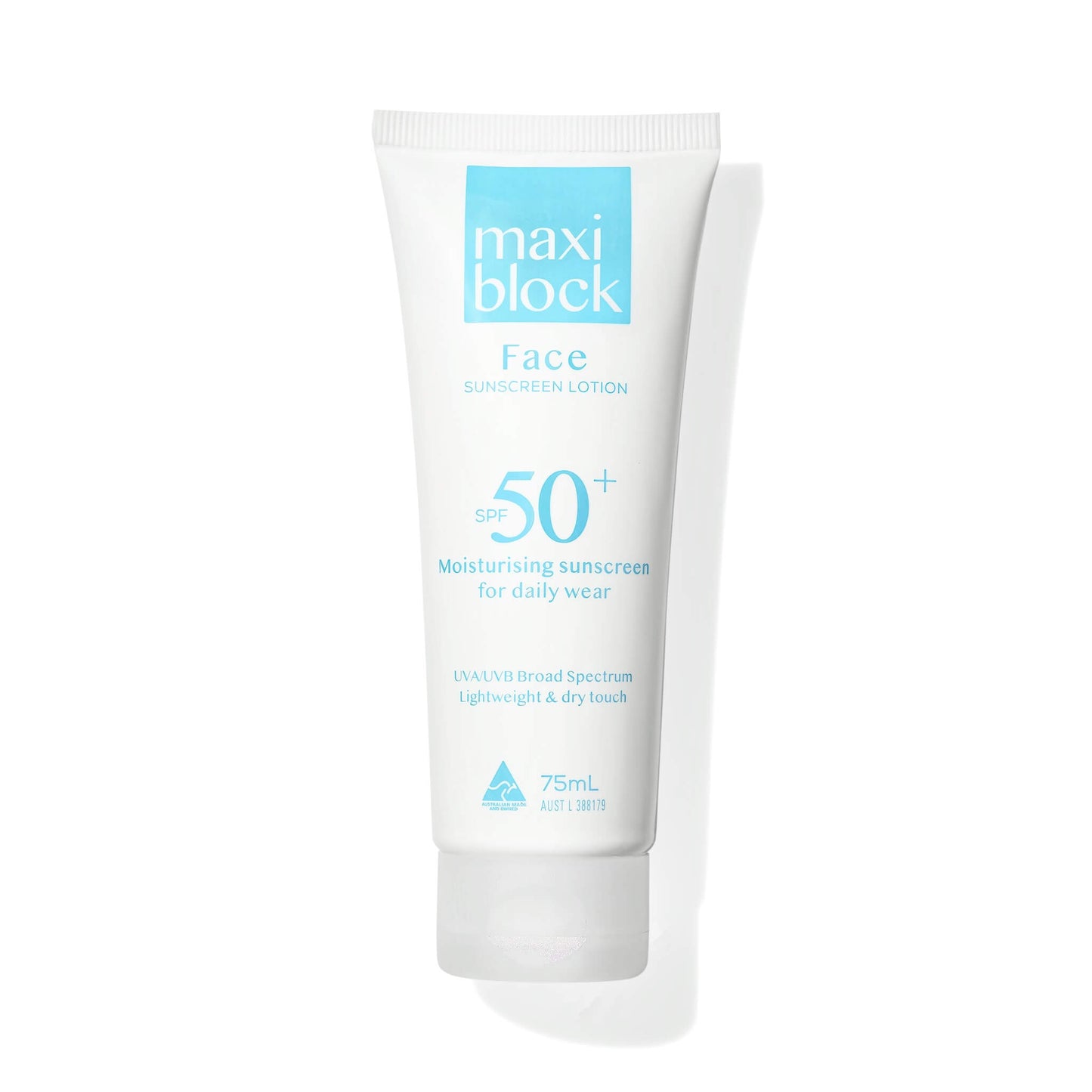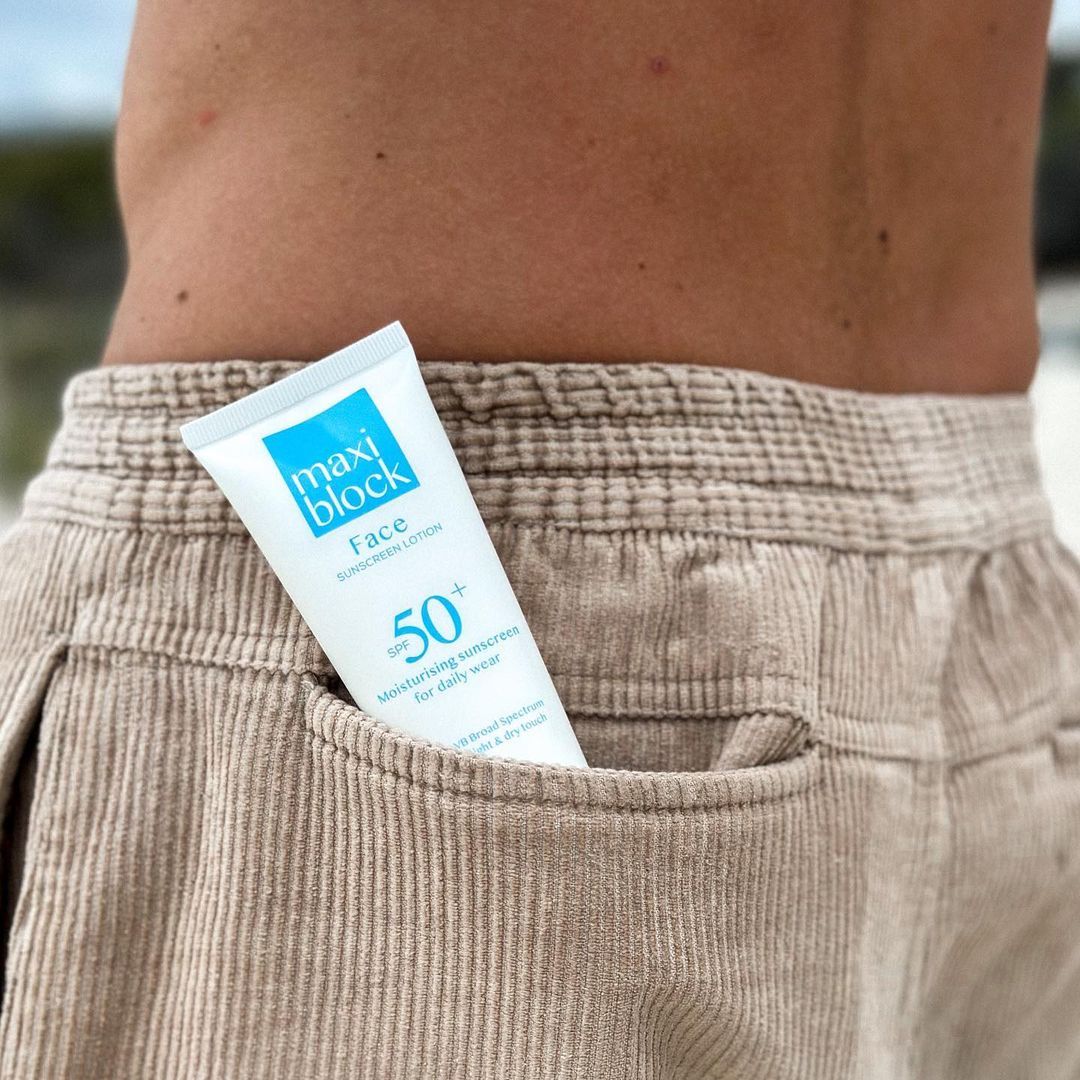Formulated to sit comfortably for everyday wear:
- Moisturising
- Silky finish
- 4h water resistant
Actives
Homosalate 100mg/g, Octocrylene 80mg/g, Butyl Methoxydibenzoylmethane 40mg/g, Ethylhexyl Salicylate 40mg/g, Ethylhexyl Triazone 30mg/g.
Inactives
Aqua, Cyclopentasiloxane, C12-15 Alkyl Benzoate, Isostearyl Neopentanoate, Cyclohexasiloxane, Ceteareth-20, Cetearyl Alcohol, Caprylyl Glycol, Glycerin, PEG-40 Stearate, Silica, Triethanolamine, Ammonium Acryloyldimethyltaurate/VP Copolymer, Xanthan Gum, Cetyl Dimethicone, Caprylhydroxamic Acid, Citric Acid, Disodium EDTA, Panthenol, Tocopherol.
How much sunscreen to apply to face?
The "two-finger rule" is the easiest guide. Squeeze out two full lines of sunscreen onto your index and middle fingers: that’s the right amount for your face and neck.
How long does sunscreen last on face?
Like any sunscreen, it needs to be reapplied at least every two hours, and more often after swimming, heavy sweating, or towel drying. A common mistake is assuming your morning application will last you through an afternoon outdoors.
How to treat sunscreen allergy on face?
If you think you're having a reaction, the first thing to do is gently wash the product off and stop using it. For any significant irritation, redness, or discomfort, the best course of action is always to see your doctor or pharmacist for advice.
How to remove sunscreen from face?
A double cleanse at night is the most effective method. Start with an oil cleanser or micellar water to dissolve the sunscreen and any makeup, then follow with your regular gel or cream cleanser. Some water-resistant sunscreens can leave a stubborn film that requires a lot of rubbing to remove.
Is sunscreen bad for your face?
No, quite the opposite. Consistent, daily use of a broad-spectrum sunscreen is the most effective way to protect your facial skin from premature ageing and sun damage.
